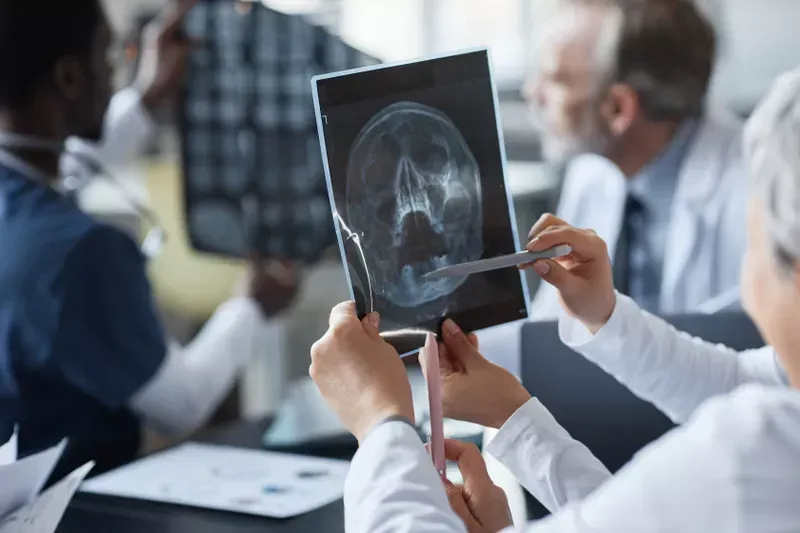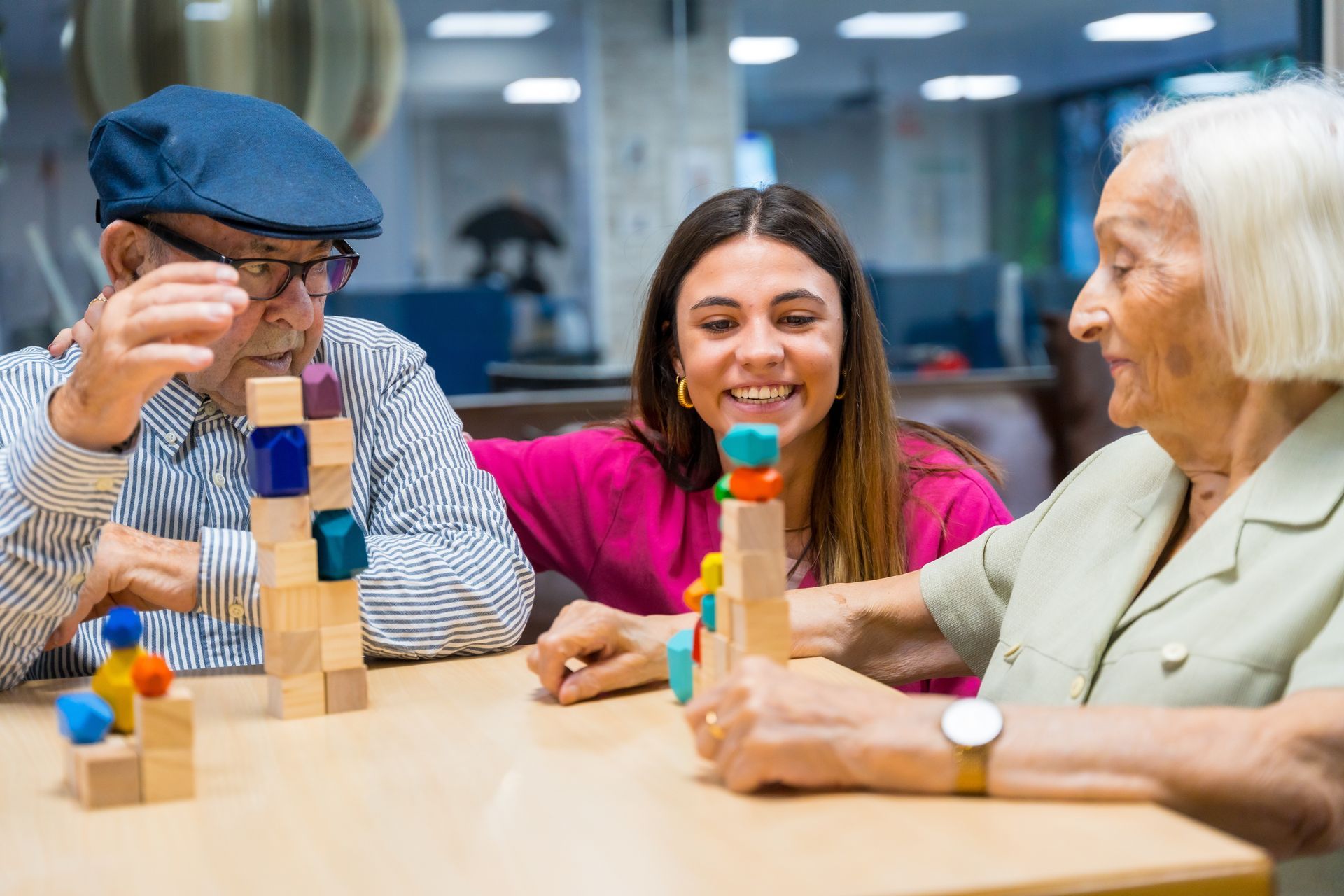BLOG
The Importance of Follow-Up Care After Traumatic Brain Injury
Traumatic Brain Injury (TBI) is a complex condition requiring ongoing care to ensure optimal recovery and quality of life. TBIs can result from falls, accidents, or other injuries, often causing significant physical and cognitive challenges. While the initial treatment stabilizes the patient, recovery often continues for months or even years. Follow-up care is critical to addressing lingering symptoms and preventing secondary complications.
Follow-up care encompasses various services, including medical monitoring, therapy, and emotional support. These services work together to restore independence, improve function, and reduce the risk of further injury. For seniors, consistent care promotes confidence and a better quality of life. Understanding the role of follow-up care is essential for patients and their caregivers.
The Role of Medical Monitoring in TBI Recovery
Medical monitoring is a cornerstone of follow-up care for seniors recovering from TBI. Regular check-ups ensure that any lingering symptoms or complications are promptly addressed. Physicians assess progress and adjust treatment plans based on the patient’s needs. This proactive approach minimizes the risk of secondary health issues.
Another critical aspect of medical monitoring is managing medications. Seniors recovering from TBI often require a combination of drugs for pain, inflammation, or other symptoms. Regular reviews by healthcare providers prevent adverse reactions and ensure medications remain effective. This oversight is especially important for seniors who may already take medications for pre-existing conditions.

Imaging studies, such as MRIs or CT scans, are sometimes necessary to monitor brain recovery. These tools help identify changes in the brain that may require further intervention. For seniors, imaging studies provide valuable insights into the healing process. Regular evaluations allow doctors to fine-tune treatment strategies for better outcomes.
Medical monitoring also involves addressing coexisting health concerns that may impact recovery. Conditions like diabetes, hypertension, or osteoporosis can complicate the healing process. A coordinated approach ensures these conditions are managed alongside TBI recovery efforts. This holistic perspective improves overall health and enhances the effectiveness of follow-up care.
Rehabilitation Therapies Are Key to Recovery from Traumatic Brain Injury
Rehabilitation therapies are essential for restoring physical, cognitive, and emotional functions after a traumatic brain injury. Physical therapy focuses on improving mobility, strength, and coordination, which are often affected by brain injuries. Tailored exercise programs help seniors regain independence and reduce the risk of falls. These improvements enhance physical health and confidence.
Occupational therapy addresses challenges related to daily living activities. Seniors relearn essential skills such as dressing, cooking, and managing household tasks. Therapists also introduce adaptive tools and techniques to accommodate lingering physical or cognitive impairments. This support allows seniors to maintain independence while navigating their recovery.
Speech therapy is crucial for seniors experiencing communication difficulties after a TBI. Speech-language pathologists help improve verbal expression, comprehension, and swallowing functions. Enhanced communication abilities reduce frustration and improve social interactions, contributing to overall emotional well-being and a better quality of life.
Cognitive rehabilitation focuses on restoring memory, attention, and problem-solving skills. For seniors, these functions are critical for maintaining independence and safety. Therapists use exercises and strategies to rebuild neural connections and improve mental sharpness. Regular cognitive rehabilitation sessions play a vital role in comprehensive TBI recovery plans.
Addressing Emotional Health During Recovery
Emotional health is often overlooked but is a critical part of recovery from traumatic brain injury. Many seniors experience anxiety, depression, or frustration as they adjust to life after a brain injury. Left unaddressed, these emotions can hinder recovery and lower quality of life. Follow-up care should include strategies for managing emotional challenges.
Counseling or psychotherapy can provide valuable tools for coping with the emotional impact of a TBI. Seniors benefit from a safe space to express their feelings and develop positive coping mechanisms. Therapists use evidence-based approaches, such as cognitive-behavioral therapy (CBT), to address negative thought patterns. Regular sessions can significantly improve emotional resilience.
Social support plays a vital role in emotional recovery as well. Isolation can exacerbate feelings of sadness or anxiety, particularly for seniors who live alone. Engaging in group activities or joining support groups for TBI survivors fosters connection and understanding. These interactions encourage and reduce feelings of loneliness.
Caregiver involvement is another important aspect of emotional health management. Educating caregivers on providing emotional support helps create a nurturing environment for recovery. Caregivers can also learn to recognize signs of emotional distress and seek professional help. A collaborative approach ensures that seniors receive the care they need.
The Importance of Long-Term Lifestyle Adjustments After a Traumatic Brain Injury
Recovery from a traumatic brain injury often requires lasting changes to daily habits and routines. Adopting healthy lifestyle practices supports continued progress and prevents setbacks. Seniors benefit from a structured approach to maintaining physical, cognitive, and emotional health. These adjustments ensure a more stable and fulfilling recovery journey.

Diet and nutrition play a significant role in supporting brain health. A balanced diet rich in vitamins, minerals, and antioxidants promotes neural healing. Seniors should focus on consuming nutrient-dense foods such as fruits, vegetables, lean proteins, and whole grains. Proper hydration is equally important for optimal brain function.
Regular physical activity tailored to individual capabilities enhances recovery outcomes. Exercise improves circulation, reduces stress, and strengthens the body. Low-impact activities like walking, swimming, or yoga are particularly beneficial for seniors. Incorporating exercise into daily routines promotes both physical and emotional well-being.
Cognitive stimulation is another essential component of long-term recovery from traumatic brain injury. Activities such as reading, doing puzzles, or learning new skills keep the brain engaged. Seniors should prioritize mental exercises that challenge memory, attention, and problem-solving. Regular cognitive engagement supports sustained improvements in brain function.
Creating a Supportive Environment for Recovery
A calm and supportive environment is crucial for seniors recovering from a TBI. Familiar surroundings with minimal stressors help create a sense of safety and stability. Caregivers can enhance the environment by reducing noise, organizing spaces, and minimizing clutter. These adjustments promote relaxation and focus during the recovery process.
Establishing a consistent daily routine provides structure and predictability. Knowing what to expect each day reduces anxiety and confusion for seniors. Scheduled mealtimes, therapies, and rest periods create a balanced and manageable lifestyle. This approach supports emotional well-being and helps seniors adjust to post-injury life.
Engaging family members in the recovery process provides additional support and motivation. Loved ones can participate in therapy sessions, encourage healthy habits, and offer companionship. Their involvement fosters a strong sense of connection and reassurance. A united family approach strengthens the overall care network.
Community resources can further enhance recovery by providing access to specialized programs and services. Seniors benefit from participation in local support groups, recreational activities, and educational workshops. These opportunities help build a sense of belonging and promote holistic recovery. Leveraging community resources ensures seniors remain engaged and supported throughout their journey.
Supporting Recovery with Comprehensive Care
The journey to recovery after a traumatic brain injury is challenging but achievable with the proper support. Comprehensive follow-up care, including medical monitoring, therapy, emotional health management, and lifestyle adjustments, is vital for success. Each component plays a unique role in promoting independence and improving the quality of life for seniors. Recovery is a gradual process that requires patience, persistence, and a supportive network.
At Assured Senior Living, we specialize in personalized care for seniors recovering from traumatic brain injuries. Our expert team offers tailored therapy programs, emotional support, and a nurturing environment to meet each individual’s needs. Contact us today to learn how we can help you or your loved one achieve the best possible recovery.















